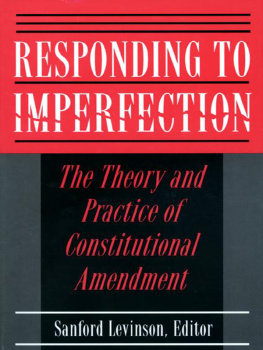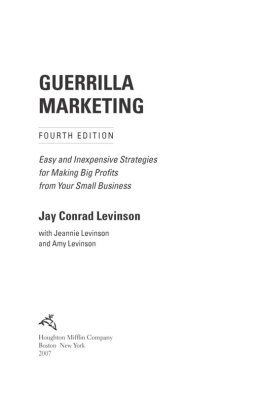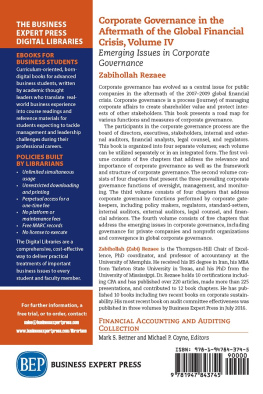Levinson - Framed: Americas fifty-one constitutions and the crisis of governance
Here you can read online Levinson - Framed: Americas fifty-one constitutions and the crisis of governance full text of the book (entire story) in english for free. Download pdf and epub, get meaning, cover and reviews about this ebook. City: USA;Oxford;United States, year: 2012, publisher: Oxford University Press, genre: Politics. Description of the work, (preface) as well as reviews are available. Best literature library LitArk.com created for fans of good reading and offers a wide selection of genres:
Romance novel
Science fiction
Adventure
Detective
Science
History
Home and family
Prose
Art
Politics
Computer
Non-fiction
Religion
Business
Children
Humor
Choose a favorite category and find really read worthwhile books. Enjoy immersion in the world of imagination, feel the emotions of the characters or learn something new for yourself, make an fascinating discovery.

Framed: Americas fifty-one constitutions and the crisis of governance: summary, description and annotation
We offer to read an annotation, description, summary or preface (depends on what the author of the book "Framed: Americas fifty-one constitutions and the crisis of governance" wrote himself). If you haven't found the necessary information about the book — write in the comments, we will try to find it.
Framed: Americas fifty-one constitutions and the crisis of governance — read online for free the complete book (whole text) full work
Below is the text of the book, divided by pages. System saving the place of the last page read, allows you to conveniently read the book "Framed: Americas fifty-one constitutions and the crisis of governance" online for free, without having to search again every time where you left off. Put a bookmark, and you can go to the page where you finished reading at any time.
Font size:
Interval:
Bookmark:
FRAMED
FRAMED
AMERICAS
FIFTYONE CONSTITUTIONS
AND THE
CRISIS OF GOVERNANCE
SANFORD LEVINSON


Oxford University Press, Inc., publishes works that further
Oxford Universitys objective of excellence
in research, scholarship, and education.
Oxford New York
Auckland Cape Town Dares Salaam Hong Kong Karachi
Kuala Lumpur Madrid Melbourne Mexico City Nairobi
New Delhi Shanghai Taipei Toronto
With offices in
Argentina Austria Brazil Chile Czech Republic France Greece
Guatemala Hungary Italy Japan Poland Portugal Singapore
South Korea Switzerland Thailand Turkey Ukraine Vietnam
Copyright 2012 by Oxford University Press, Inc.
Published by Oxford University Press, Inc.
198 Madison Avenue, New York, NY 10016
www.oup.com
Oxford is a registered trademark of Oxford University Press
All rights reserved. No part of this publication may be reproduced,
stored in a retrieval system, or transmitted, in any form or by any means,
electronic, mechanical, photocopying, recording, or otherwise,
without the prior permission of Oxford University Press.
Library of Congress Cataloging-in-Publication Data
Levinson, Sanford, 1941
Framed : Americas 51 constitutions and the crisis of governance / Sanford Levinson.
p. cm.
Includes bibliographical references and index.
ISBN 9780199890750 (hardback :alk. paper)
1. Constitutional lawUnited StatesStates. 2. Constitutional lawUnited States.
3. Federal governmentUnited States. 4. Separation of powersUnited States.
I. Title.
KF4530.L48 2010
342.7302dc23
2012001177
1 3 5 7 9 8 6 4 2
Printed in the United States of America
on acid-free paper
For Jack Balkin and Mark Graber,
cherished friends and colleagues
CONTENTS
FRAMED
This book is the result of many years of reflection. But itespecially the titlealso is a response to contemporary American politics. The most basic question that can one can ask about any political system is whether it is capable of governing effectively, even if one recognizes that there will be different criteria of effectiveness. As the manuscript moved toward publication, the Minnesota state government was shut down for three weeks because of the inability of its divided state government to reach agreement on a budget.
The U.S. government shut down briefly but notably in 1995, as the result of seemingly irreconcilable differences between then Speaker of the House Newt Gingrich and President Clinton. Another shutdown in December This crisis, too, was averted at the last minute because of almost torturous compromises generated by a sufficiently bipartisan agreement that default would have unacceptable consequences.
This, however, did not prevent the decision by Standard & Poors to downgrade American debt from AAA to AA status. Among the companys rationales for doing so was the following: The downgrade reflects our view that the effectiveness, stability, and predictability of American policymaking and political institutions have weakened at a time of ongoing fiscal and economic challenges.
The S&P analysis reflects the widespread view that the American political system has become profoundly dysfunctional. As the distinguished British writer Timothy Garton Ash wrote on August 3, 2011, A couple of years back, it was still vaguely original to describe Americas political system as dysfunctional. Now the word is on every commentators lips.
The Gallup organization reports that trust in Americas basic institutions is at historic lows. The most trusted governmental institution is the military; over three-quarters of the public has a great deal or quite a lot of confidence in our armed forces. At the other end of the spectrum is Congress, about which only a total of 12 percent are willing to express confidence. Four times as many respondentsa full 48 percentdescribed their confidence level as very little or none. The presidency as an institution has the significant confidence of only slightly more than one-third of the public, 1 percent less than those with very little or none. Even the U.S. Supreme Court must include the 41 percent who have some confidence to achieve a confidence level over 75 percent. If one adds those with some confidence, we find an overall 94 percent confidence level in the military.
Would so few Americans have approved of or had confidence in the British Parliament or King George III had similar polls been taken in 1775? Would three-quarters of all the colonists disapproved? It is impossible to answer these questions with any precision, but we do know that the numbers of Americans who strongly disapproved of those British institutions (including the British Redcoats) were sufficient to generate a violent secessionist movement within the British Empire that had monumental consequences.
No doubt it is hyperbolic to think that we are truly in an analogous situation today. But perhaps one should take seriously the comments of Washington Post columnist E. J. Dionne in his 2011 Fourth of July column on the Tea Partys rise in contemporary American politics. Whether they intend it or not, writes Dionne, their name suggests they believe that the current elected government in Washington is as illegitimate as was a distant, unelected monarchy And it hints that methods outside the normal Consider the comments of Republican candidate Sharron Angle in her 2010 bid to represent Nevada in the U.S. Senate:
Our Founding Fathers, they put that Second Amendment in there for a good reason, and that was for the people to protect themselves against a tyrannical government. In fact, Thomas Jefferson said its good for a country to have a revolution every 20 years. I hope thats not where were going, but you know, if this Congress keeps going the way it is, people are really looking toward those Second Amendment remedies [suggested by the right to keep and bear arms].
Remarkable changes have occurred in polities across the world over the past generation with the development of mass social movements protesting the perceived failures of established political orders. Can we be absolutely certain that American exceptionalism inoculates our own political system against such political movements? (We did, after all, have our own exceptionally bloody secessionist movement between 1861 and 1865.)
Many Tea Partiers proclaim the virtues of local and state government, but one can wonder if Americans are really significantly more contented with their political institutions closer to home. Thus, the widely respected Field Poll in California found in September 2010 that approval of the California legislature was at a record low,to be the beacon for Americas bright future seems to have become more of a dystopia.
Public discontent is mirrored, and perhaps encouraged, by what can be found in mainstream journalistic commentary. Newsweek, for example, published a viewpoint essay in January 2010 titled America the Ungovernable. a recipe for political breakdown.
A major premise of this book is that there is a connection between the perceived deficiencies of contemporary government and formal constitutions. This is especially true of the interplay between American national politics and the U.S. Constitution, but it is also true with regard to many state constitutions. To take the easiest case, almost no one believes that one can discuss Californias problems without paying attention to the particularities of its state constitution, even if one acknowledges as well the importance of Californias diverse political cultures, dramatically changing demographics, and the sheer size of its population. Similarly, one can readily assign multiple causes to the present conditions in the United States and the consequent unhappiness and discontent of a large majority of its citizens. It may well be the case that these causes, in the language of modern political science, explain more of the variance between acceptable and unacceptable governance than do defects in constitutional structures.
Next pageFont size:
Interval:
Bookmark:
Similar books «Framed: Americas fifty-one constitutions and the crisis of governance»
Look at similar books to Framed: Americas fifty-one constitutions and the crisis of governance. We have selected literature similar in name and meaning in the hope of providing readers with more options to find new, interesting, not yet read works.
Discussion, reviews of the book Framed: Americas fifty-one constitutions and the crisis of governance and just readers' own opinions. Leave your comments, write what you think about the work, its meaning or the main characters. Specify what exactly you liked and what you didn't like, and why you think so.







